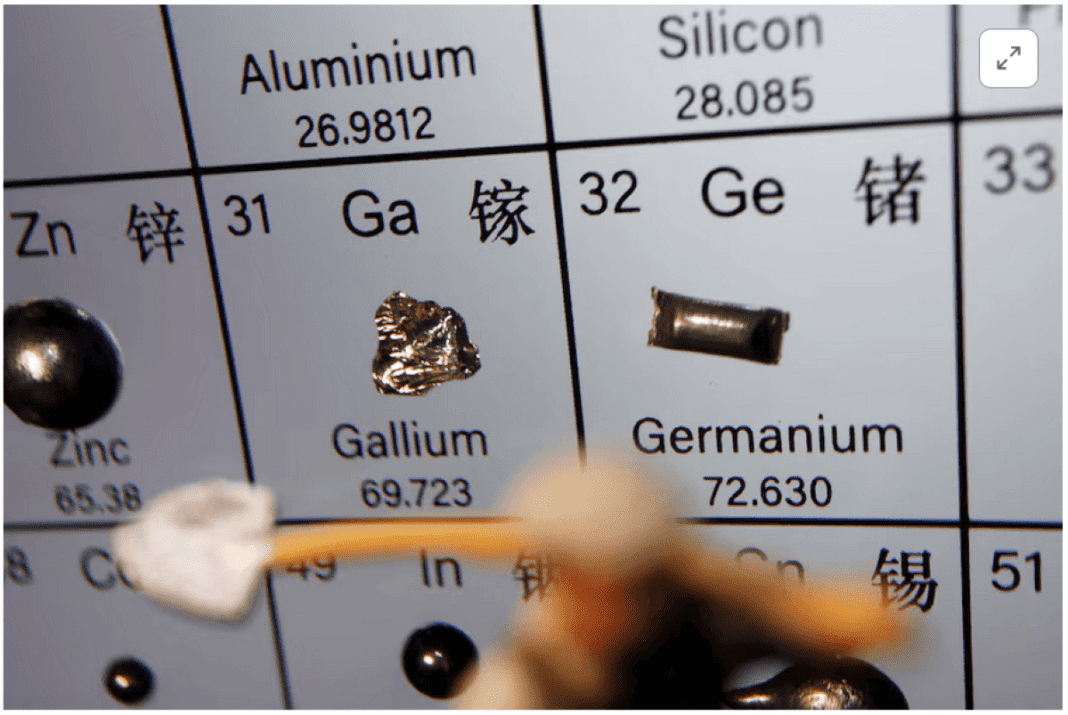On Tuesday, China announced a ban on exporting critical minerals—gallium, germanium, and antimony—to the United States, citing national security concerns. The move intensifies trade tensions between the two largest economies following the U.S.’s latest restrictions targeting China’s semiconductor industry.
The Chinese Ministry of Commerce directive also mandates stricter reviews of graphite exports to the U.S., highlighting dual-use items with both civilian and military applications. The ban, effective immediately, prohibits exports of these minerals to the U.S. “in principle,” according to the ministry’s statement.
Strategic Implications
Gallium and germanium are crucial for semiconductors, infrared technologies, fiber optics, and solar cells, while antimony is vital for ammunition, infrared missiles, and electric vehicle batteries. China dominates global production of these materials, accounting for 98.8% of refined gallium and over half of refined germanium output this year, as per consultancy Project Blue.
The U.S., which lacks sufficient domestic production of these materials, has expressed concerns over the implications. A White House spokesperson stated that the U.S. would take “necessary steps” in response and emphasized the need to diversify supply chains away from reliance on China.
Economic and Industrial Fallout
Chinese customs data show that shipments of germanium and gallium to the U.S. had already ceased earlier this year. Antimony exports, meanwhile, have plummeted, leading to soaring prices—up 228% for antimony trioxide in Europe since January. Experts warn that the restrictions could further strain global supply chains already under pressure.
Jack Bedder, co-founder of Project Blue, described the ban as a “considerable escalation” in the ongoing supply chain standoff. U.S. companies like Perpetua Resources, working on domestic antimony mines, urged a stronger push for local mineral production.
Retaliatory Context
China’s decision follows the U.S. crackdown on over 140 Chinese semiconductor-related companies on Monday, including Naura Technology Group. These measures add to the trade tensions fueled by Washington’s broader efforts to curb China’s technological advancements.
President-elect Donald Trump, set to take office next month, has previously advocated for steep tariffs on Chinese goods, signaling further challenges in bilateral relations. Peter Arkell, chairman of the Global Mining Association of China, remarked, “This trade war has no winners.”
Industry Response
In the wake of the ban, Chinese industry groups are urging domestic buyers to avoid U.S.-made chips, citing reliability concerns. Analysts suggest that China’s latest export restrictions could prompt a global scramble for alternative sources of critical minerals, potentially reshaping supply chains in the years to come.





